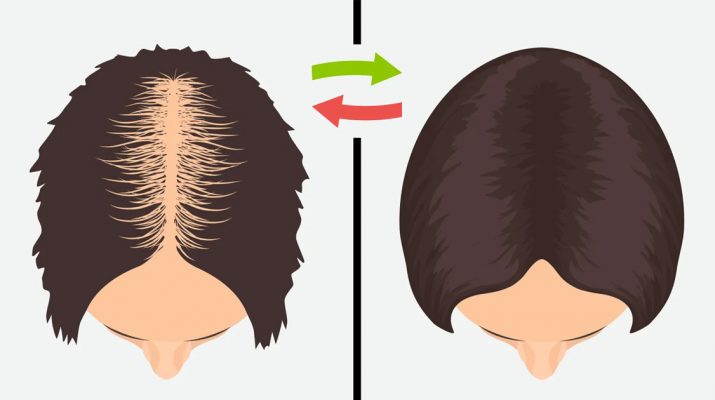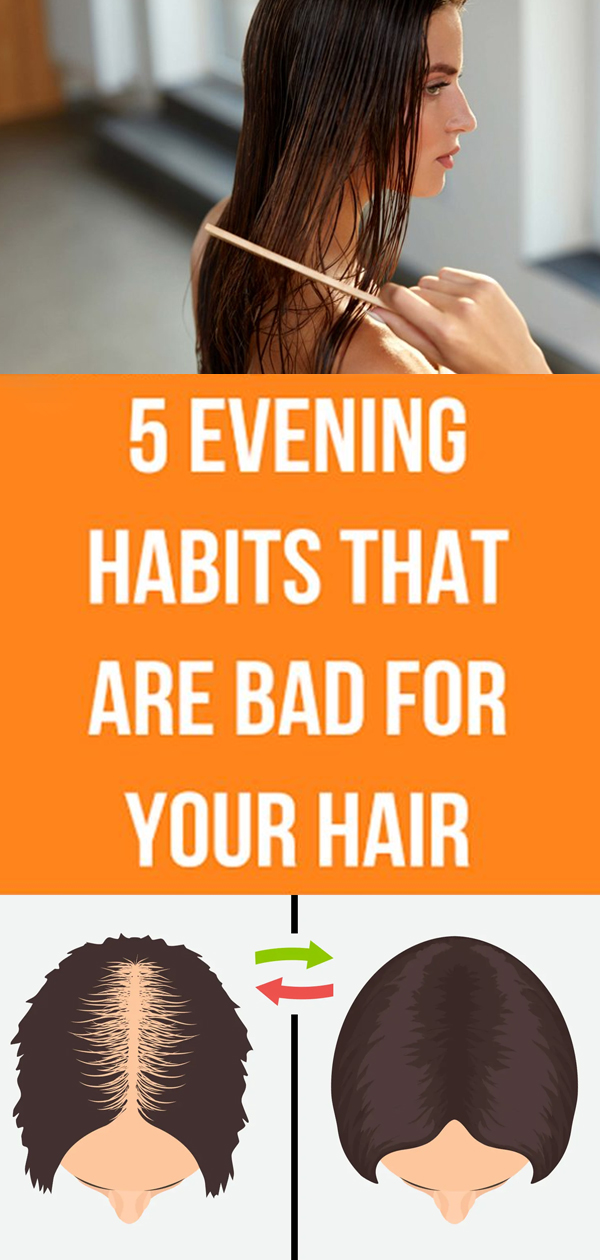Many individuals take pride in their hair. It’s not uncommon for someone to have a comprehensive hair care routine in order to keep it healthy and feeling fresh.
Unfortunately, not all of these routines are made equal, and sometimes the habits we build to care for our hair could have the opposite effect entirely. Here are some evening habits that hurt your hair and how to prevent them.
Here Are 5 Evening Habits That Hurt Your Hair
“Sleeping on a silk pillowcase will help to prevent hair breakage and damage that can happen in the middle of the night as you toss and turn.” – Unknown
1. Sleeping With Wet Hair
It’s understandable that, after washing your hair at night, you might already feel exhausted and want to turn in for the night. Unfortunately, that is actually a very damaging routine. This is because hair is incredibly weak when it is damp or wet, and in this state, there is a much higher chance of it breaking.
The friction from wet hair rubbing against bedsheets as one sleeps can cause dryness, fizziness, and broken cuticle ends. The tension that affects one mere strand of hair can affect all the others around it, too, and forcefully towel-drying can also present the same problems.
In order to avoid this problem, you can perform some hair care by moving this routine to the morning (and we will talk more about all the reasons this can be a great move in a short while). However, if you really must wash your hair at night, be sure to give it plenty of time to air dry.
You can also use a hairdryer on a cool setting in a pinch. You can also braid wet hair before going to sleep to avoid damage, but try not to make this a regular habit.
2. Brushing Badly Or Not Brushing At All
If you choose to brush your wet hair right after getting out of the shower in the evening, your hair will receive the same amount of damage that sleeping with wet hair will cause. Unfortunately, there are just as many negative effects that can come from not brushing before bed at all!
If you sleep with tangled up hair, you’re likely to add more tangles to it, create knots, and cause fizziness, split ends, and breakage. By brushing dry hair right before bed, you stimulate the scalp and help to distribute natural oils throughout the entirety of your hair strands, positively promoting healthier and shinier hair.
Once again, your best option is to ensure your hair has plenty of time to dry before bed so you can run your brush through it before you hit the sack. In fact, brushing your hair can be relaxing, and doing so in the evenings may help you get to sleep more easily. For best results, use a wide-toothed comb – best for natural oil distribution and also great for removing tangles.
3. Using The Wrong Pillowcases
Cotton pillowcases – and cotton sheets in general – have a good chance of increasing hair loss. This is because cotton tends to cause added friction to the hair, leading to looser hair follicles or breakage. Even if you don’t move around a lot at night, the slightest friction can lead to this problem. Sheets that collect lint are even worse, so older pillowcases that need replacing will cause the same issues.
What sort of sheets should you opt for, then? Satin or silk are both much healthier options for the hair. It’s a good investment to make, as not only does it ensure greater hair, but it also makes for a more luxurious bedtime.
If you cannot purchase silk or satin sheets, then you can get a silk scarf or something similar to wrap your hair up at night. Not only will this prevent unwanted frizz and friction, but it will also keep the hair in place so it doesn’t get too tangled as you snooze, making it a two-in-one solution.
4. Tying Your Hair Incorrectly
The way you tie your hair before going to bed can dictate whether or not your hair becomes damaged as you sleep. Using a hair tie that uses metal parts can be especially damaging, as the metal can actually tear at hair follicles when you sleep. Tight elastic bands may also damage the hair, especially when your hair is wet, and may cause creasing along the follicles.
Tying your hair too tightly – whether in a ponytail or a bun – is also very harmful. It’s easy to assume that tying the hair tightly will prevent knots from occurring, or stop breakage, but it is actually quite the opposite. As a matter of fact, doing so repeatedly can cause the hairline to recede and result in thinning.
The solution to this? You can avoid tying your hair altogether. If you must tie your hair, use loose, soft scrunchies that are free from any metal. In addition, when tying your hair to go to sleep, do so very loosely. You can opt for a loose, high ponytail if your hair is not particularly long, a loose high bun for longer hair, or even a nice braid for a wavy touch when you wake up.
You should also be sure to change the position of your tied hair every so often because wearing the same top knot for the whole day may cause further damage.
5. Skipping Hair Care
A lot of people decide that simply shampooing and washing the hair is sufficient for full hair care, but this is far from the case. While you don’t need a lengthy hair routine for healthy tresses, it is vital that you incorporate some extra steps beyond shampooing, and there is no better time to do so than in the evening.
Neglecting to use conditioner can lead to easily preventable breakage to the hair. It causes you to miss out on some great properties that can boost growth and shine. Scalp care is also vital as this is where all your hair follicles are embedded – an unhealthy scalp means unhealthy hair by default.
How can you practice proper hair care? First, condition your hair as often as you wash it. If you plan to wash your hair every morning, then before you go to bed, use a deep conditioning product that can help to keep your hair moisturized as you sleep. For scalp care, put on a scalp mask before you go to sleep.
Final Thoughts
Old habits die hard, but when these habits can cause damage to your hair, you’ll want to switch them up and search for better solutions instead of just positive thinking! By avoiding these harmful evening habits that can damage and replacing them with our suggested hair care solutions, you’ll ensure healthy, shiny, and beautiful locks of hair.


